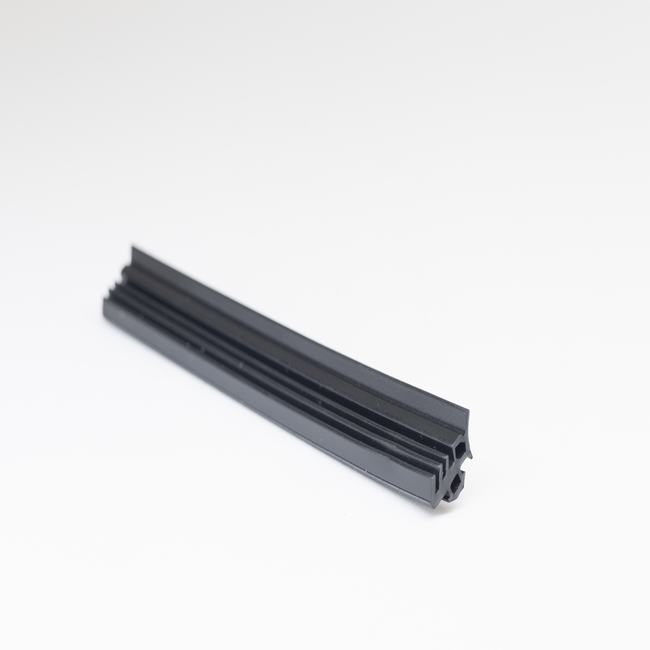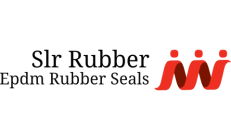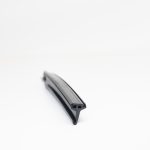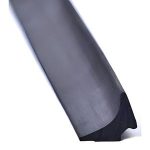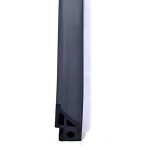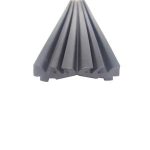Industrial seals are vital components used in various manufacturing and engineering applications across multiple industries. These seals are designed to prevent leakage, contamination, and the ingress of foreign materials, thereby ensuring the efficiency, safety, and reliability of industrial equipment and processes. This extensive description delves into the various aspects, types, materials, and applications of industrial seals, highlighting their significance in today’s industrial landscape.
1. Purpose and Function:
Industrial seals serve several critical functions within industrial equipment and systems:
- Leakage Prevention: The primary function of industrial seals is to prevent the escape of fluids, gases, or particles from a confined space, such as a pipeline, valve, or machine. This is crucial for maintaining process integrity, safety, and environmental compliance.
- Contamination Control: Seals also work to keep contaminants out of sensitive equipment, preventing foreign particles, dust, or moisture from entering and potentially causing damage or malfunction.
- Pressure and Temperature Management: Some industrial seals are designed to withstand and control extreme pressure differentials and temperature variations, ensuring that industrial processes can operate efficiently under challenging conditions.
- Vibration and Shock Absorption: In machinery and equipment, seals can help dampen vibrations and shocks, reducing wear and tear on moving parts and prolonging equipment life.
2. Types of Industrial Seals:
There is a wide variety of industrial seals, each tailored to specific applications and operational conditions. Common types include:
- O-Rings: O-rings are round, donut-shaped seals typically made of rubber or elastomeric materials. They are used in a wide range of applications to create a seal between two mating surfaces.
- Gaskets: Gaskets are flat, non-metallic seals that are often used in flange connections, providing a seal between two flat surfaces.
- Lip Seals: Lip seals, also known as oil seals, are used to prevent the leakage of fluids along a rotating shaft. They are commonly found in engines, gearboxes, and pumps.
- Mechanical Seals: Mechanical seals are used in rotating equipment, such as pumps and compressors, to prevent the leakage of liquids or gases. They consist of two flat faces pressed together with a fluid barrier in between.
- Hydraulic Seals: Hydraulic seals are used in hydraulic systems to prevent fluid leakage and control pressure. They come in various designs, including piston seals, rod seals, and wipers.
- Rotary Seals: These seals are used in rotating equipment, such as rotary shafts or gearboxes, to prevent the escape of fluids or contaminants.
3. Materials Used:
Industrial seals are crafted from a diverse range of materials, selected based on the application’s specific requirements. Common seal materials include:
- Elastomers: Rubber compounds, such as nitrile, neoprene, silicone, and Viton, are widely used for their flexibility, resilience, and resistance to various fluids and temperatures.
- Plastics: Materials like PTFE (Teflon), polyurethane, and nylon offer excellent chemical resistance and low friction properties.
- Metals: Metal seals, often made from stainless steel, are used in high-temperature and high-pressure applications where durability and resistance to corrosion are essential.
- Composites: Some seals are constructed from composite materials, which combine the advantages of different materials to offer superior performance in specific applications.
4. Applications:
Industrial seals are indispensable in a wide range of industries and applications, including:
- Oil and Gas: In the oil and gas sector, seals are used in pipelines, valves, and drilling equipment to prevent leaks and control pressures and temperatures.
- Automotive and Transportation: Vehicles utilize seals in engines, transmissions, axles, and other critical components to prevent fluid leaks and ensure optimal performance.
- Aerospace: Aerospace applications rely on seals to maintain pressure differentials and prevent contamination in aircraft engines, hydraulic systems, and fuel systems.
- Manufacturing and Machinery: Seals are essential in manufacturing processes and industrial machinery to prevent fluid leakage, maintain cleanliness, and minimize downtime.
- Pharmaceutical and Food Processing: In these industries, seals are used to maintain the integrity and sterility of equipment used in the production of drugs and food products.
- Renewable Energy: Seals are used in wind turbines and solar equipment to maintain lubrication and prevent contamination, ensuring the efficiency and longevity of these systems.
5. Maintenance and Replacement:
Proper maintenance and regular inspection of industrial seals are crucial for ensuring their longevity and optimal performance. Replacement of worn or damaged seals is essential to prevent leaks, contamination, and potential equipment failure.
In conclusion, industrial seals are foundational components in numerous industrial processes and applications. Their diverse types, materials, and functions make them essential for maintaining the efficiency, safety, and reliability of equipment and systems across a wide range of industries. These seals play a vital role in preserving the integrity of industrial operations and protecting both human and environmental safety.
